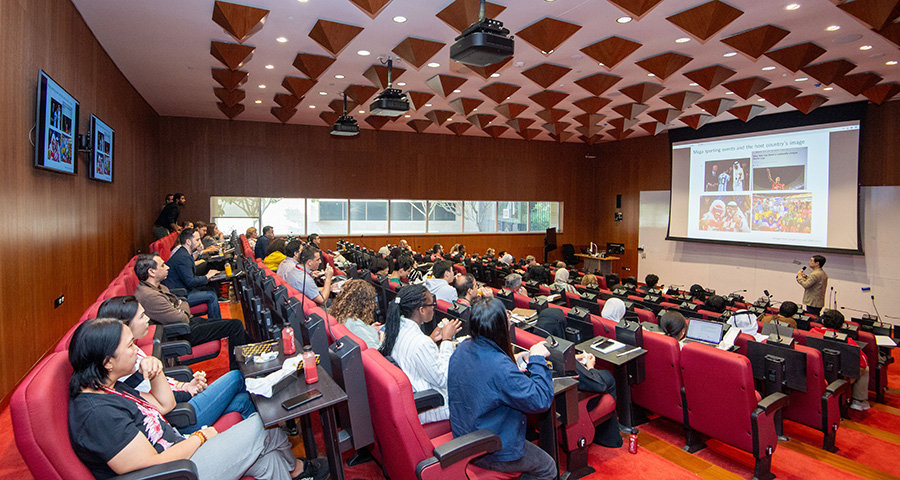
Carnegie Mellon Qatar launches new Faculty Research Seminar Series
Carnegie Mellon University in Qatar (CMU-Q) has launched a seminar series featuring faculty members from a wide range of disciplines. The series showcases the breadth of scholarship taking place at CMU-Q, and provides community members with a window into opportunities for collaboration and further study.
Jennifer Bruder is the associate dean for research at CMU-Q: “Along with financial support, a thriving research ecosystem should also have community support,” she said. “This series is one way faculty members can share their work, and community members can learn about new ideas and opportunities for collaboration.”
The Faculty Research Seminar Series is organized by the CMU-Q Seed Research Committee, led by committee chair Mohamed Bouaouina. The first event featured three projects in three very different fields.
Taeyong Park, assistant teaching professor of statistics, presented his study into the effect of hosting the FIFA World Cup on the brand awareness and image of Qatar. Analyzing Twitter sentiment and survey data, Park found that Qatar saw an improvement of awareness and perception, especially among non-Arabs from South America and Europe.
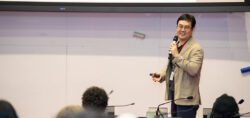
Taeyong Park presenting at the Faculty Research Seminar Series.
Andrés Castaño Zuluaga is an assistant teaching professor of economics and analytics in the business administration program. He presented an analysis of the fiscal effects of immigration in Colombia, finding that immigration impacted the revenue-contributing capacity of Colombians by its effect on the wages of low-skilled workers. However, the effect was too small to drive large changes in the fiscal contribution of Colombians.
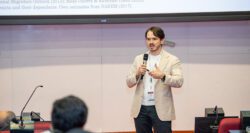
Andrés Castaño Zuluaga
Nesrine Affara, associate teaching professor of biological sciences, and Jeffrey Squires, assistant teaching professor of English, presented their analysis on a scene and the adjacent science in the television series, The Last of Us. Their paper is an interdisciplinary look at how science and plausibility work rhetorically in dark science fiction.
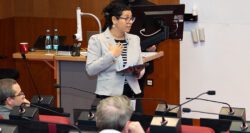
Nesrine Affara
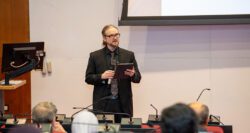
Jeffrey Squires
Last year, 11 faculty members received new seed grants to help support their research endeavors. Many students assist with these projects through summer research initiatives and independent study, which often leads to student-initiated research in the later undergraduate years.
